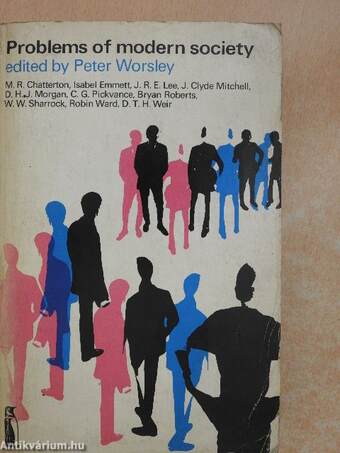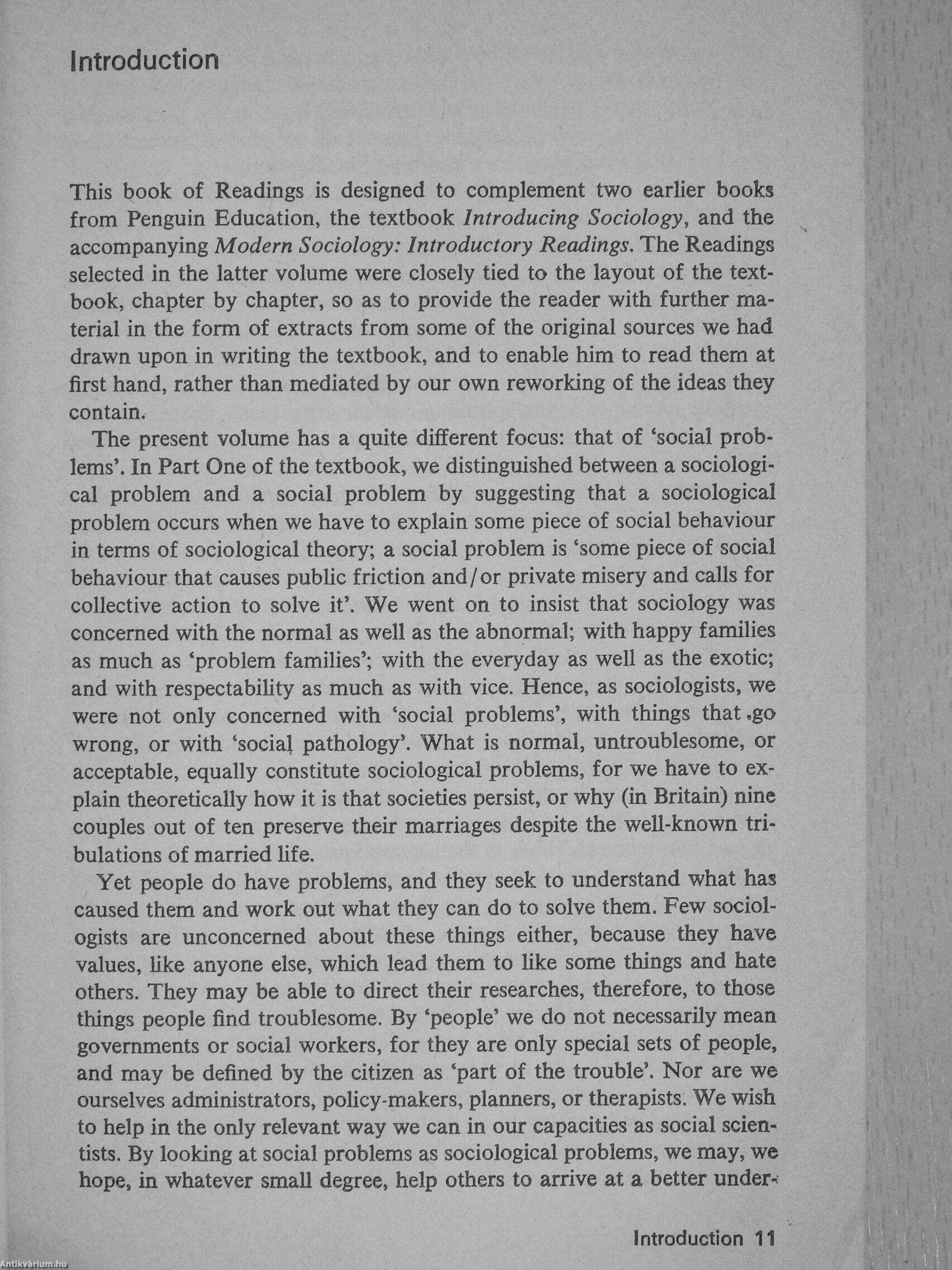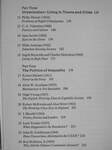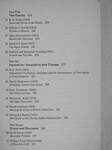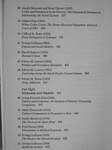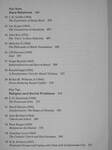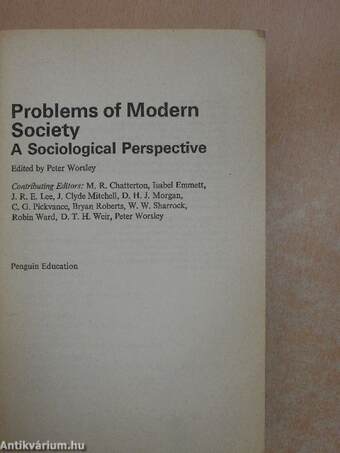1.116.679
kiadvánnyal nyújtjuk Magyarország legnagyobb antikvár könyv-kínálatát
Problems of Modern Society
A Sociological Perspective
| Kiadó: | Penguin Education |
|---|---|
| Kiadás helye: | Hammondsworth |
| Kiadás éve: | |
| Kötés típusa: | Ragasztott papírkötés |
| Oldalszám: | 637 oldal |
| Sorozatcím: | |
| Kötetszám: | |
| Nyelv: | Angol |
| Méret: | 20 cm x 13 cm |
| ISBN: | 0-14-08-0291-6 |
| Megjegyzés: | További kapcsolódó személyek a könyvben. Néhány fekete-fehér ábrát tartalmaz. |
naponta értesítjük a beérkező friss
kiadványokról
naponta értesítjük a beérkező friss
kiadványokról
Előszó
TovábbFülszöveg
One of the most widely held beliefs about sociologists is that their business is finding solutions to social problems'. Very often, of course. It is. But a sociological problem is not the same as a social problem. The former occurs when there is a need to explain some piece of social behaviour in terms of sociological theory; the latter when some piece of social behaviour causes misery and needs collective action to solve it. Nevertheless, as the editors suggest in outlining the aim of their book: By looking at social problems as sociological problems, we may, we hope, in whatever small degree, help others to arrive at a better understanding of why and how unpleasant things happen to them.'
This major collection of Readings, as pathfinding in conception and broad in scope as its two predecessors from Manchester, examines the whole range of ways in which society generates problems that are subsequently experienced by individuals. Its eleven • Parts - covering, amongst other... Tovább
Fülszöveg
One of the most widely held beliefs about sociologists is that their business is finding solutions to social problems'. Very often, of course. It is. But a sociological problem is not the same as a social problem. The former occurs when there is a need to explain some piece of social behaviour in terms of sociological theory; the latter when some piece of social behaviour causes misery and needs collective action to solve it. Nevertheless, as the editors suggest in outlining the aim of their book: By looking at social problems as sociological problems, we may, we hope, in whatever small degree, help others to arrive at a better understanding of why and how unpleasant things happen to them.'
This major collection of Readings, as pathfinding in conception and broad in scope as its two predecessors from Manchester, examines the whole range of ways in which society generates problems that are subsequently experienced by individuals. Its eleven • Parts - covering, amongst other topics, people at work, urbanization, the family, sickness and health, race relations, and ecology - also throw light on our attitudes towards social problems, how some are still looked on as the result of moral laxity, and how a pattern of behaviour can be looked on by one group as a problem and by another as an achievement.
This relativistic view is crucial to the purpose underlying this collection. With the aid of comprehensive Part Introductions, the editors have tried to go beyond'the established view of what constitutes a social problem to a larger view of the forces that produce disorder and unhappiness, in whatever quarter. As they point out, a deviant can have problems just as much as 'being' one.
Problems of modern society was specially commissioned by Penguin Education from a team in the Department of Social Anthropology and Sociology at Manchester University. It has evolved very much from their experience of teaching newcomers to sociology, and will prove invaluable to anyone - in school, college or university - wishing to encounter first hand the writings of the leading protagonists of the relevance of sociology to the modern world.
This collection includes: Cook on cities, Blumer on industrial relations, Jacobs on the street, Gouldner on bureaucracy, Trotsky on revolution, Laing on the family, Goodman on schooling, Becker on school-teachers, Whyte on slum sex, Geis on white-collar crime, Zborowski on pain, Goffman on asylums. Griffin on being black, Hannerz on soul, Berger on religion, Kahn on nuclear war, Hall on hippies, Ehrlich on ecology, Chomsky on intellectuals.
Published as companion volumes are Introducing sociology, an introductory text, and Modern sociology: introductory readings, both prepared by the same team.
United Kingdom L1.00 New Zealand $3.25 Canada $4.25
Australia $3.25 (recommended)
Published by
Penguin
Education
SOCIOLOGY b ANTHROPOLOGY
ISBN 0 14 08.0291 6 Vissza
Témakörök
- Idegennyelv > Idegennyelvű könyvek > Angol > Egyéb
- Szociológia > Tankönyvek, jegyzetek, szöveggyűjtemények > Felsőoktatási
- Szociológia > Egyéb
- Idegennyelv > Idegennyelvű könyvek > Angol > Szociológia > Egyéb
- Idegennyelv > Idegennyelvű könyvek > Angol > Szociológia > Tankönyvek, jegyzetek, szöveggyűjtemények > Felsőoktatási
- Tankönyvek, jegyzetek, szöveggyűjtemények > Szociológia > Felsőoktatási


